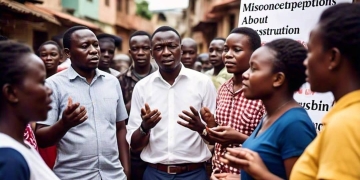
The Buganda Kingdom, one of East Africa’s most prominent and enduring monarchies, has a rich history shaped by its succession of kings, or Kabakas. Each Kabaka has played a crucial role in the kingdom’s development, navigating challenges and triumphs over the centuries. Here, we explore the legacy of Buganda’s past kings up to the present Kabaka, shedding light on their reigns and contributions to the kingdom’s history.
Kato Kintu (14th Century)
The founding of the Buganda Kingdom is attributed to Kato Kintu, who is believed to have established the monarchy in the late 14th century. Kato Kintu’s reign set the foundation for Buganda’s centralized governance and laid the groundwork for future expansion. His leadership brought together various clans under a single kingdom, promoting unity and stability.
Chwa Nabakka (15th Century)
Chwa Nabakka, Kato Kintu’s successor, continued to consolidate the kingdom. His reign is noted for expanding Buganda’s territory and strengthening its political structures. Chwa Nabakka is remembered for fostering the kingdom’s early development and establishing the royal lineage that would continue to rule Buganda for centuries.
Nakibinge Kagali (16th Century)
Nakibinge Kagali is one of Buganda’s most revered kings, known for his valiant defense of the kingdom against external threats. His reign faced significant challenges from rival kingdoms and invasions. Despite these pressures, Nakibinge’s leadership and military prowess ensured the kingdom’s survival and resilience.
Mutesa I (1856–1884)
Kabaka Mutesa I’s reign marked a significant period of transformation for Buganda. He was a dynamic leader who engaged with European explorers and missionaries, including the famous meeting with British explorer John Hanning Speke. Mutesa I’s openness to foreign influence brought new ideas and technologies to Buganda, while he skillfully maintained the kingdom’s sovereignty amidst increasing European interest in East Africa.
Mwanga II (1884–1897)
Mwanga II’s reign was turbulent, marked by conflicts with Christian missionaries and the British colonial administration. His resistance to European influence led to clashes, including the martyrdom of Christian converts who defied his orders. Mwanga II’s opposition to colonialism culminated in his exile following the British imposition of a protectorate over Buganda. Despite his controversial reign, Mwanga II is remembered for his staunch defense of Buganda’s independence.
Daudi Chwa II (1897–1939)
Ascending the throne at a young age, Daudi Chwa II’s reign was characterized by efforts to modernize Buganda within the constraints of British colonial rule. Educated and progressive, Daudi Chwa II advocated for educational reforms and infrastructure development. His reign saw the introduction of Western-style governance, which influenced Buganda’s administrative and social structures.
Mutesa II (1939–1969)
Kabaka Edward Mutesa II’s reign was marked by significant political upheaval. He navigated the challenges of World War II, the push for Ugandan independence, and post-colonial tensions. In 1966, Prime Minister Milton Obote abolished the kingdoms and declared Uganda a republic, leading to Mutesa II’s exile. His eventual death in London marked a somber period for Buganda. Mutesa II’s efforts to assert Buganda’s autonomy remain a defining aspect of his legacy.

Ronald Muwenda Mutebi II (1993–Present)
The restoration of the Buganda Kingdom in 1993 saw Ronald Muwenda Mutebi II ascend the throne, marking a new era of cultural revival and political significance. Kabaka Mutebi II’s reign has focused on promoting Buganda’s heritage, economic development, and environmental conservation. His leadership has reinforced the kingdom’s role in modern Uganda, balancing tradition with contemporary challenges.
Under Kabaka Mutebi II, Buganda has seen the revitalization of cultural institutions and the strengthening of its socio-economic structures. Initiatives such as the restoration of historical sites, the promotion of traditional crafts, and the support for education and health services have been pivotal. The Kabaka’s efforts to engage with the central government while advocating for Buganda’s interests reflect his diplomatic approach to leadership.
The lineage of Buganda’s kings showcases a rich tapestry of leadership, resilience, and adaptation. From the founding days of Kato Kintu to the present reign of Kabaka Ronald Muwenda Mutebi II, the Buganda Kingdom has navigated the complexities of internal strife, colonialism, and modern statehood. Each Kabaka has left an indelible mark on the kingdom, shaping its history and future.
As Buganda continues to thrive in contemporary Uganda, the legacy of its kings remains a source of pride and inspiration.
The enduring strength of the Buganda Kingdom is a testament to the resilience of its people and the visionary leadership of its monarchs.

















